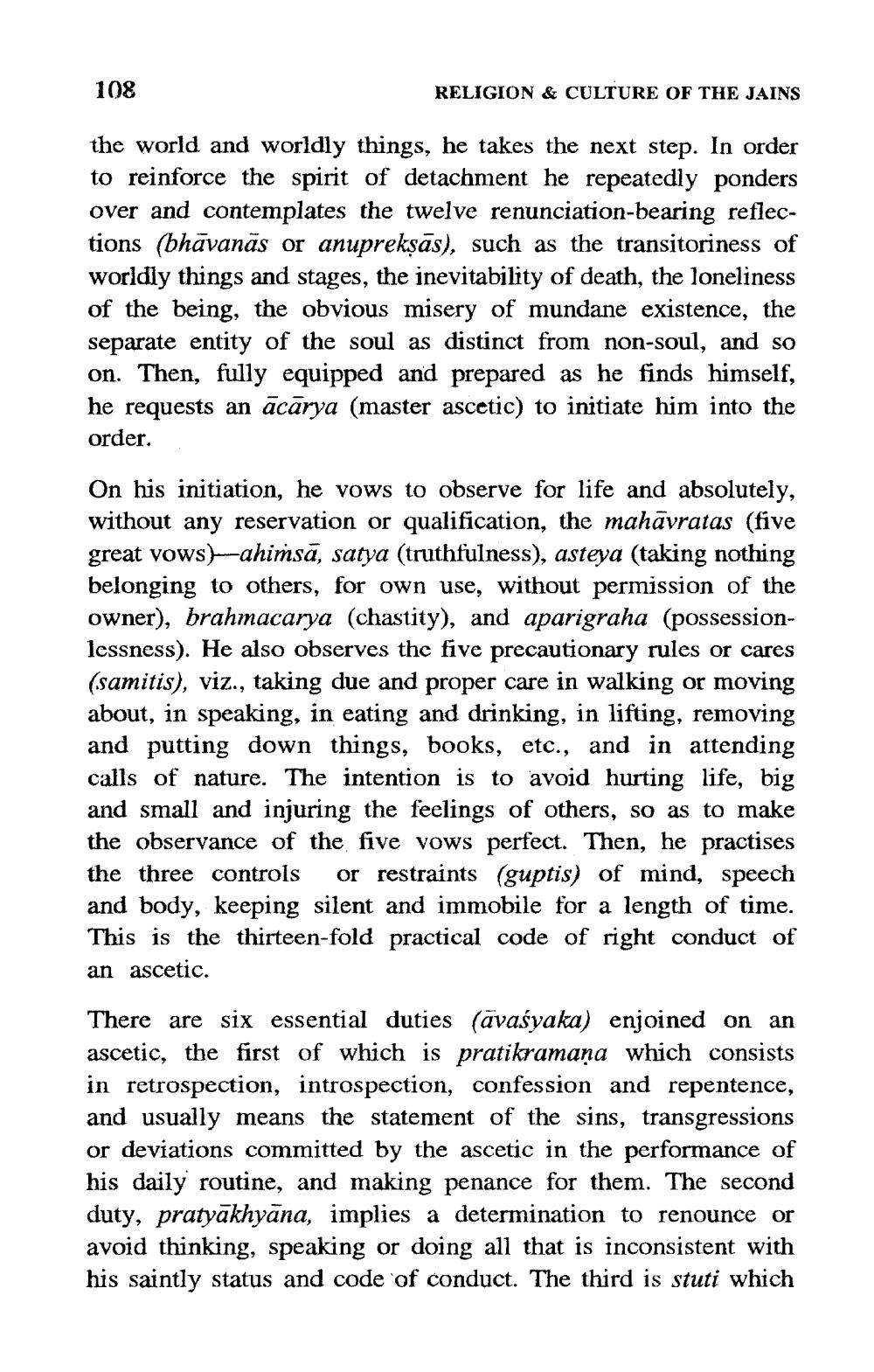________________
108
RELIGION & CULTURE OF THE JAINS
the world and worldly things, he takes the next step. In order to reinforce the spirit of detachment he repeatedly ponders over and contemplates the twelve renunciation-bearing reflections (bhāvanās or anuprekṣās), such as the transitoriness of worldly things and stages, the inevitability of death, the loneliness of the being, the obvious misery of mundane existence, the separate entity of the soul as distinct from non-soul, and so on. Then, fully equipped and prepared as he finds himself, he requests an ācārya (master ascetic) to initiate him into the order.
On his initiation, he vows to observe for life and absolutely, without any reservation or qualification, the mahāvratas (five great vows)-ahimsā, satya (truthfulness), asteya (taking nothing belonging to others, for own use, without permission of the owner), brahmacarya (chastity), and aparigraha (possessionlessness). He also observes the five precautionary rules or cares (samitis), viz., taking due and proper care in walking or moving about, in speaking, in eating and drinking, in lifting, removing and putting down things, books, etc., and in attending calls of nature. The intention is to avoid hurting life, big and small and injuring the feelings of others, so as to make the observance of the five vows perfect. Then, he practises the three controls or restraints (guptis) of mind, speech and body, keeping silent and immobile for a length of time. This is the thirteen-fold practical code of right conduct of an ascetic. There are six essential duties (āvaśyaka) enjoined on an ascetic, the first of which is pratikramana which consists in retrospection, introspection, confession and repentence, and usually means the statement of the sins, transgressions or deviations committed by the ascetic in the performance of his daily routine, and making penance for them. The second duty, pratyākhyāna, implies a determination to renounce or avoid thinking, speaking or doing all that is inconsistent with his saintly status and code of conduct. The third is stuti which




